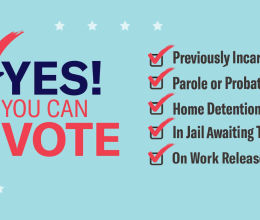
CONTACT:
Ana Blinder, ACLU, 646-905-8877, ablinder@aclu.org
Aliya Khan, ACLU of Minnesota, 812-230-4241, akhan@aclu-mn.org
ST. PAUL, Minn.— The American Civil Liberties Union and ACLU of Minnesota filed a lawsuit challenging the City of Faribault, Minnesota’s unconstitutional rental licensing ordinance, aimed at reducing the number of people of color living in rental housing within its borders. The ordinance requires landlords to participate in a so-called “Crime-Free Housing Program.” There are six individual plaintiffs and one organization plaintiff, Somali Community Resettlement Services.
A predominantly white community, the city passed the ordinance targeting its growing communities of color in violation of the Fair Housing Act and the Equal Protection Clause of the Fourteenth Amendment.
“To quell its discriminatory and misplaced fear of Black people, especially Somali immigrants, the city enacted this ordinance aimed at pushing them out of the community,” said Rachel Goodman, staff attorney for the ACLU’s Racial Justice Program. “Depriving someone of a home because of where they come from or what they look like is illegal and unconstitutional. This country was founded on the ideals of equality and opportunity, and Faribault’s ordinance undermines those ideals.”
After community members expressed fear that Somali residents, part of a growing immigrant community, were engaging in crime, Faribault’s own Chief of Police contended that “fear and cultural clashes” rather than an uptick in crime were to blame for concerns. Nonetheless, Faribault responded by enacting its rental licensing ordinance, which allows police to order all members of a household evicted if any member or guest engages in what police deem to be criminal activity. These evictions can be ordered even without an arrest or prosecution, and even if a person is found not guilty in the related criminal case. Landlords are also instructed to refuse to rent to potential tenants with a criminal history, regardless of whether that record suggests a present risk for property or safety. This policy disproportionately affects Black Minnesotans, who are far more likely to have criminal records than their white counterparts, due to systemic racism in the United States’ criminal justice system.
“Faribault used this discriminatory ordinance to force me out of my home,” said Plaintiff Priyia Lacey. “I hope that Faribault will eliminate it so that more families of color don’t have to go through what mine did.”
The ordinance additionally limits the number of people who can live in a rental unit, disproportionately impacting Somali families, which often have five or more children. This occupancy restriction means that Somali families have been forced out of their homes because a new baby puts them over the ordinance’s limit.
“The Somali community has been denied and forced out of housing due to an inequitable and unnecessary housing ordinance that discriminates against large families,” stated Teresa Nelson, Legal Director of the ACLU of Minnesota. “It wasn’t that long ago that large families were much more common. It’s clear that this ordinance was passed with the intent to drive out specific types of people.”
City officials have touted the success of the ordinance’s Crime Free Housing Program at “get[ting] rid of” residents who are “undesirable[].” One member of the City Council stated that Faribault needed to attract higher income residents or it would “flip like Detroit in a few years.” These statements further reveal the discriminatory motive behind the ordinance.
Cooperating attorneys in the case include: Jennesa Calvo-Friedman and Rachel Goodman of the ACLU along with Ian Bratlie and Teresa Nelson of the ACLU-MN.


